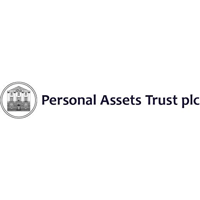Personal Assets Trust plc (LON:PNL) has announced its results for the year ended 30 April 2025.
The key points are as follows:
· The Company’s investment policy is to protect and increase (in that order) the value of shareholders’ funds per share over the long term.
· Over the year to 30 April 2025 the net asset value (NAV) total return was 7.5%. This compares to a total return of 7.5% in the FTSE All-Share Index. The share price rose by 28.00p during the year and at 30 April 2025 was 511.00p. An analysis of performance is provided in the Chairman’s Statement and Investment Manager’s Report below.
· Percentage changes to 30 April 2025:
| Percentage Changes | |||||
| 1 Year | 3 years | 5 Years | 10 Years | Since 1990 (1) | |
| Share Price | 5.8 | 1.6 | 18.0 | 45.7 | 1,193.7 |
| NAV per Share (2) | 5.8 | 4.7 | 20.8 | 47.3 | 809.1 |
| FTSE All-Share Index | 3.7 | 9.8 | 40.8 | 22.2 | 340.4 |
| Share Price Relative to FTSE All-Share | 2.0 | (7.5) | (16.2) | 19.3 | 193.8 |
| Share Price Total Return(2) | 7.4 | 6.3 | 26.5 | 67.8 | 2,432.7 |
| NAV per Share Total Return(2) | 7.5 | 9.6 | 29.7 | 69.9 | 1,659.9 |
| Retail Price Index (RPI) | 4.5 | 20.2 | 37.5 | 55.9 | 221.5 |
| Consumer Price Index (CPI) | 3.5 | 15.1 | 27.4 | 38.3 | 150.3 |
| FTSE All-Share Total Return | 7.5 | 22.6 | 67.9 | 75.9 | 1,441.3 |
| Share Price Total Return relative to FTSE All-Share Total Return | (0.1) | (13.3) | (24.7) | (4.6) | 64.3 |
| Share Price Total Return relative to RPI | 2.8 | (11.6) | (8.0) | 7.6 | 687.8 |
| Share Price Total Return relative to CPI | 3.8 | (7.7) | (0.7) | 21.4 | 912.0 |
(1) The Company became self-managed in 1990.
(2) Alternative Performance Measure. Please see pages 64 and 65 of the Annual Report for a glossary of terms and definitions.
· During the year the Company’s shares continued to trade close to NAV. The Company bought back 26,087,000 shares and issued 600,000 shares in the year under review.
· During the year, the Company continued to maintain a high level of liquidity. At 30 April 2025, liquidity was 63.3%. This included 21.8% in UK Gilts, UK index-linked bonds, UK cash, overseas cash, and net current assets and 41.5% in various classes of non-equity risk assets: 26.7% in US TIPS, 4.0% in US Treasuries and 10.8% in Gold Bullion. This compared to holdings as at 30 April 2024 of 11.8% in UK Gilts, UK cash, overseas cash, and net current liabilities and 60.6% in various classes of non-equity risk assets: 36.5% in US TIPS, 11.6% in US Treasuries and 12.5% in Gold Bullion.
Personal Assets Trust Chairman, Iain Ferguson, said:
Our world has become ever more unpredictable and uncertain over the last year. We have seen a predicted change of government in the UK and the ‘world changing’ re-election of President Trump in the United States. Trump has dominated the geo-political and world-economic agenda since the start of the year, challenging and disrupting long-standing relationships across the globe, whilst conducting his own ‘brand’ of diplomacy and negotiation in a blaze of highly public engagements: ‘Not for him the Art of Quiet Diplomacy’. In recent weeks his imposition of tariffs, followed by myriad bilateral negotiations and ‘special-deals and arrangements’ has both spread alarm and confusion but has also shown the limits of his ability to influence international markets without severely damaging the US economy. Very sadly, the wars in Europe, the Middle East and Africa continue and are each proving to be hugely intractable despite intensifying international efforts to find workable solutions; we must hope that these efforts can finally prevail and bring lasting and just peace.
This is the volatile and challenging context in which we seek to deliver our core investment proposition, which is to protect and increase (in that order) the value of shareholders’ funds per share (also known as net asset value (‘NAV’) per share), over the long term. All the Personal Assets Trust plc (‘PAT’) Directors and our Investment Managers at Troy Asset Management Limited (‘Troy’), Sebastian Lyon and Charlotte Yonge, are shareholders in PAT. As such, we are all strongly aligned and are advocates for this investment proposition. As PAT Directors, we have a close, but also independent, relationship with the Troy team, bringing our collective experience to complement, inform, challenge and support.
We track the performance of the Company from 1990. Since then, the NAV total return has grown at an annual compound rate of 8.6% compared to 3.5% for the UK Retail Price Index and 8.4% for the FTSE All-Share Index (total return), our two main comparators. We also track the degree of risk experienced in achieving our financial performance. The results are tabulated in the Key Features section on page 2 of the Annual Report and the volatility experienced is indicated on the chart on page 11 of the Annual Report. This shows that over the last 25 years the Company has been less volatile than equities in general and also less volatile than the AIC Flexible Investment Sector. Whilst this combination of above comparator financial performance and below-sector volatility is the outcome of a focus on capital preservation, these metrics are by no means a target. The Investment Manager’s focus remains on the avoidance of permanent capital loss (our preferred definition of risk) and on growing the real value of the Company’s capital over the long run. In the report on pages 6 and 7 of the Annual Report, Sebastian and Charlotte provide further details of our investment performance and describe the particular challenges of the last year.
During the year we bought back 26,087,000 Ordinary shares into Treasury, and issued 600,000 Ordinary shares from Treasury, under the Company’s discount control policy, for a net outflow of £126 million. As at 30 April 2025 we had 392,805,200 Ordinary shares in issue, with 75,966,828 Ordinary shares in Treasury. It is the policy of the Company to ensure that, in normal market conditions, its Ordinary shares always trade at or close to NAV and this policy is enshrined in the Articles of Association. It is reassuring to report that since November 1999, when investment trusts were empowered to use capital to buy back shares and hence control the discount to NAV at which their shares trade, the PAT share price has closely tracked the NAV. This has held true both through periods of significant issuance and, as demonstrated in recent past, through a period of sustained buyback avoiding the major discounts to NAV which have impacted many trusts across the wider market.
The Company aims to pay as consistent and sustainable a dividend as is compatible with protecting and increasing the value of its shareholders’ funds and maintaining its investment flexibility. The Board remains committed to paying an annual dividend of 5.60p per share in line with this policy. High levels of inflation during the year, particularly in the United States, mean that the Company has again this year earned significantly more income on its holding of US TIPS than in previous years. Accordingly, in order to meet the investment trust distribution requirements, the Board has resolved to pay an additional special dividend for the year to 30 April 2025 of 1.60p per share. This dividend will be paid to shareholders in July 2025 alongside the first interim dividend of 1.40p per share for the year to 30 April 2026.
The Board membership has enjoyed a further year of stability and I am grateful for the continuing commitment and wise counsel of my colleagues. Jean Sharp will step down from the Board after nine years as a Director, latterly as Chair of the Audit and Risk Committee at the close of the upcoming AGM. Jean has been a very effective and diligent member of the Board and we are grateful for the significant contribution she has made to PAT; we wish her well for the future. Sharon Brown will be joining the Board as a Director and Chair of the Audit and Risk Committee, with effect from the conclusion of the AGM. Sharon brings extensive financial and commercial experience together with contemporary knowledge of investment trusts; we look forward to her contribution to our discussions. During 2025 Lintstock conducted an independent external review of the performance of the Board and its Committees. Whilst this did not highlight any material weaknesses or concerns, it did helpfully identify a few areas for further focus by the Board in the period ahead. Further detail can be found on page 29 of the Annual Report, and we will comment on progress made in our report next year.
As part of our oversight of our key service providers, we conduct a formal annual review process with Troy. The review process is led by Mandy Clements and includes open discussions with all the PAT Directors and several members of the senior team at Troy. We have all found this to be a positive and helpful exercise. In summary, our relationship with Troy continues to be excellent and we are increasingly benefitting from access to the shared resources and focused support from the wider Troy team. We now hold at least two Board meetings each year in the Troy offices in London which is helping us to get to know more members of the Troy team and to deepen our relationship on a broader base. As our shareholder funds continue to be above £1.5 billion, we continue to benefit from the revised fee structure agreed in 2021. Details of the fee structure are shown on page 15 of the Annual Report. We also pay particular attention to ensuring the competitiveness of our ongoing charges ratio, which was 0.67% for the year ended 30 April 2025, having reduced from 0.89% in 2013 and is a small increase from last year’s figure of 0.65%.
We adopt a similar annual review process with Juniper Partners. As with Troy, this process is led by Mandy Clements. Our relationship with Juniper Partners, which provides our administrative, company secretarial, AIFM and discount control services, continues to be excellent with a very open and supportive culture. Juniper Partners provides a first-class service to the Company and works in close association with Troy to provide a seamless service to the PAT Board and shareholders.
We recognise the continuing evolution of the Company’s shareholder base and the increasing number of investors holding shares through retail platforms who may not have direct access to communications with the Company. This is a challenge which is often discussed by the Board as we seek to improve communication and interaction with investors. We hope that our website (www.patplc.co.uk), our Quarterlies, our Annual and Interim Reports and our monthly Factsheet are providing investors with easy and effective access to information about PAT and we will continue to seek innovative ways of improving our dialogue with shareholders and with potential shareholders.
We are looking forward to holding the AGM at 12 noon on Friday 18 July 2025 at The Royal College of Physicians of Edinburgh. The Investment Manager’s presentation will also be made available on our website following the AGM for those who cannot attend in person. I would encourage all shareholders to submit any questions for the AGM to our Company Secretary by email in advance of the meeting at [email protected] by Tuesday, 15 July 2025. In the meantime, I wish you all good health and thank you for entrusting your investment to PAT.
Iain Ferguson CBE
Chairman
17 June 2025
The Investment Co-managers, Sebastian Lyon and Charlotte Yonge, said:
Over the year to 30 April 2025, the net asset value per share (‘NAV’) of Personal Assets Trust (‘PAT’) rose by +7.5% while our traditional comparator, the FTSE All-Share Index (‘FTSE’), rose by +7.5% (both in total return terms). The UK Retail Price Index (‘RPI’), which we also use as a comparator (see the inside front cover of the Annual Report and Key Features and Record 1990-2025 on pages 2 and 3 of the Annual Report respectively), rose by +4.5%. The Company’s NAV and share price (thanks to the discount control mechanism ‘DCM’) continued to demonstrate below-average volatility compared to peers and the stock market.
Our aim is to protect and grow shareholders’ capital over the long term. Our desire is to generate equity-like returns (high single-digits) with bond-like, or considerably lower, volatility. The performance of your Company over the past year has happened to be almost exactly in line with the return for the UK stock market, our comparator, but this is merely a coincidence as our portfolio could not look more different. Shareholders should expect returns to vary materially from the stock market. Our focus is on absolute returns rather than returns relative to an index. We are very aware that shareholders cannot spend relative pounds!
The performance of markets over the year belies considerable volatility – especially after the tariff announcements on ‘Liberation Day’ in April. PAT shareholders were sheltered from much of the volatility with the Company’s NAV falling only modestly (-1.9%), compared to near double digit falls of -9.7% and -10.5% in the MSCI World and FTSE All-Share respectively. Moreover, in a period in which many investment trust discounts have widened materially, shareholders have been protected by the DCM, with the shares consistently trading close to the NAV.
Our investment views in recent years have been shaped by an expectation of regime change. This began with policy decisions made during the pandemic. The shift to substantial monetary expansion by central banks, combined with fiscal spending by governments led to a more inflationary environment. Since the blow out of inflation in 2022 and 2023, in which UK RPI peaked at 14% and US CPI peaked at 9%, central banks have struggled to get inflation back to target, despite the tightest monetary policy in almost two decades. The fiscal genie is out of the bottle and government spending has grown, despite recent attempts (in the United States) to reverse fiscal commitments. Elon Musk’s attempt via the Department of Government Efficiency (DOGE) to rein in federal spending appears to have failed. Government debts have grown dramatically across the developed world. This was fine whilst interest rates were close to zero but today, with interest rates and bond yields at 4%-5%, the interest burden has become a material part of government spending. In the US, this cost has ballooned in the past three years from 8% of federal government tax receipts in 2022 to 19% in 2025 (source: Jefferies). Globalisation, which provided growth and helped depress inflation, appears to be firmly in reverse. President Trump’s recently announced trade war and isolationist inclinations have only accelerated the deglobalisation trend. Finally, the war in Europe, now in its fourth year, is leading to a wholesale change in defence spending. All these factors have led to a world of greater uncertainty, higher inflation and a bond bear market, which began in the summer of 2020. Thus far, the 2020s are looking very different from the 2010s.
Amid this environment, we have attempted to avoid the trap of rising bond yields, which affects the valuations of fixed income securities and some equities. We have sailed close to the shore with a relatively low equity exposure and short bond duration; preferring index-linked to nominal bonds. Gold bullion has played a critical role in the portfolio as a diversifier and an offset to falls in other asset prices, when they occur. We hold plenty of liquidity for when we see selective and more wholesale opportunities in the stock market.
The biggest contributors to performance during the year included our holdings in Visa, VeriSign, Unilever and American Express. The biggest detractors were Diageo and Pernod Ricard, which continue to suffer from weaker trading in spirits markets. Following a boom both during and following the pandemic, the sector has suffered from a nasty hangover of weaker demand and pricing. Our experience informs us that demand will ultimately recover but it may take time. The valuations are low today by historic standards, which should offer support and, ultimately, opportunity.
During the year we made several changes to the portfolio and by our standards, we were more active than usual. We sold longstanding holdings in Becton Dickinson and Procter & Gamble (‘P&G’). Despite making a positive total return since our purchase in 2020, Becton Dickinson continued to face operational challenges and financial progress has been sluggish. Subsequent to our sale, the shares have fallen materially on further deterioration in the company’s operating environment. P&G was first acquired in 2015. It proved to be an excellent investment for us; a well-executed long term turnaround. In addition, P&G benefited from a strong US domestic economy, when peers struggled in Europe and emerging markets. The shares have materially re-rated over many years of clinical delivery by competent management but performance is looking less resilient, with slowing organic sales growth and a valuation that looks hard to justify compared to peers like Unilever.
Over the last year, we have added new holdings of Canadian National Railway, Chubb and VeriSign. We have followed Canadian National for five years. Its natural monopoly, as a North American railroad, allows the company to generate high, sustainable profit margins. Adverse weather and port strikes provided an opportunity to purchase this structurally advantaged business at a below-average valuation. We have also been looking for companies that benefit from a rising yield environment. Chubb, the world’s largest property and casualty insurer, has an exceptional track record of managing its risks with a consistent track record of profitability and capital allocation. The company is well-known for its strong market position serving high net worth customers. There is an opportunity to materially grow investment income from higher bond yields. As Chubb’s bonds held on its balance sheet mature, they are reinvested at higher yields, providing a tailwind to earnings, which was not present in a zero-interest rate world. Lastly, VeriSign is the exclusive registry for .com and .net domain names, meaning any company that buys a .com web address ultimately purchases it from VeriSign. The company has provided uninterrupted service for over 20 years and is rewarded by being able to gradually raise prices for domains. We expect VeriSign to grow sales and profit margins through modest growth in the number of web addresses, gradual price rises and operating leverage. We were also attracted by its strong balance sheet, with very conservative debt levels.
In the stock market falls that followed the announcement of United States’ tariffs, we increased existing equity holdings as well as adding two new European companies to the portfolio, LVMH and L’Oréal. Both meet our careful, quality criteria and had fallen to valuations which looked fair.
Apart from the portfolio’s equity exposure, we are seeking complementary asset classes that may offset falls in equity markets. The US dollar has been kind to us over many years, especially during periods of stock market turbulence such as 2008, 2020 and 2022. The greenback has ridden to our rescue in these times of trouble, dampening the volatility of the Company’s NAV. More recently the currency has not stuck to the script. Our view is that this may prove to be a lasting change as investors increasingly question the dollar’s position as the world’s reserve currency. We have reduced the dollar exposure in favour of the yen, which we expect to behave more reliably as a safe haven in periods of market stress.
Gold remains a cornerstone of the portfolio. As no one’s liability, bullion has a special place, and it is once again being appreciated as the ultimate reserve asset. In a world of heightened geopolitical risk, and the desire to diversify away from the US dollar, central banks continued to add to their holdings during the past year. There are very rational reasons for the recent rise in the price, when compared to paper money. Charlie Munger used to say, “Always invert”. Consider the gold price not rising but the value of paper currencies, like sterling and the US dollar, depreciating in value when compared to gold. We would not wish to get disproportionately more bullish into rising prices, so we have reduced the trust’s holding into strength, retaining a percentage weighting of 10-12%.
During the past year, the investment narrative has changed from ‘American exceptionalism’ to one best summed up by the acronym ‘ABUSA – anything but the USA’. We are not convinced life is so simple. Such views demonstrate changes to sentiment and a voting machine mentality, over the weighing machine of substance. The US stock market remains very fully valued, yet it also hosts some of the very best companies including Microsoft and Visa, held by the Company, which are not available elsewhere. We will continue to add selectively to equities in the US, Europe and the UK, as we did during market falls in April when presented with improved valuations and better prospective returns.
Finally, in March we were delighted to announce the promotion of Charlotte Yonge as Co-Manager of PAT, which became effective on 1 May. This changes very little as to how the Company is managed day-to-day and I very much look forward to continuing our partnership in the years ahead. As longstanding investors in Personal Assets Trust Plc, Charlotte and my interests are firmly aligned with fellow shareholders. Charlotte has been at Troy since 2013 and is one of several employees who have been with the business for over a decade. We see great value in hiring, developing, and retaining talent, and believe that our high rates of retention underline the stability and depth of our broader team.
Sebastian Lyon and Charlotte Yonge
Troy Asset Management








































